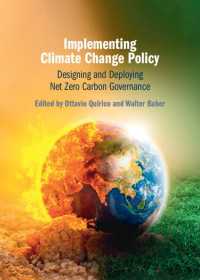Description
Why immunization must be made mandatory in times of vaccine hesitancy, and how we can design and implement immunization policies in a practical, trustworthy, and democratic way.
We live in perilous times when a significant number of citizens are either defiantly antivaccination or hesitant to accept vaccinations for themselves or for their children. In Inducing Immunity?, legal philosopher Roland Pierik and bioethicist Marcel Verweij, explore ways to regulate collective immunization in as democratic a manner as possible. Approaching the problem as a matter of a conflict between the responsibility of government to protect public health and the basic right to freedom of citizens, Pierik and Verweij argue that John Stuart Mill’s harm principle—the idea that individuals should be free to act so long as their actions do not harm others—offers a strong basis for coercive immunization policies.
Covering childhood immunization policies, as well as vaccination programs aimed at adult citizens, the authors argue that a coercive immunization policy in any liberal democracy must first satisfy the principle of proportionality. This leads them to an in-depth exploration of the role of exemptions, the nature of coercion, and the contents of vaccination programs. In the final part of the book, the authors also discuss the importance and scope of freedom of speech, given how the current spread of misinformation has undermined confidence in vaccines.
Offering an in-depth analysis in bioethics and legal philosophy, Inducing Immunity? is a sensible and applicable guide for health professionals, policymakers, and academics alike on how we can—and must—do better with our immunization policies.








